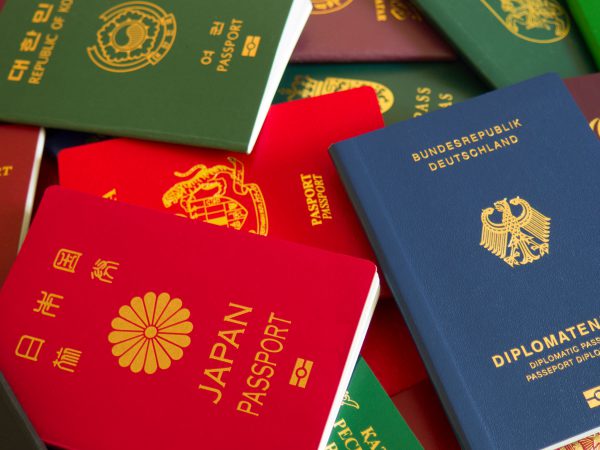SINGAPORE, 8 April 2020: With global travel almost at a standstill, the latest results of the Henley Passport Index offer disturbing insight into the indiscriminate havoc caused by the Covid-19 pandemic.
Since its inception in 2006, the index has provided an annual ranking of global passport strength. Travel freedom has increased dramatically since 2006 when a citizen could travel to 58 destinations on average without a visa from the host nation. Now, 14 years later, the destinations have doubled to 107.
The first ranking of the new decade published in January this year confirmed Japan was the top-ranking passport offering its holders access to a record-breaking 191 destinations without requiring a visa in advance. Just three months later, the picture looks very different indeed.

Japan’s passport continues to hold the top spot on the Henley Passport Index as we enter the second quarter of 2020, but the reality is that current stringent travel restrictions mean that most non-essential travel for Japanese nationals is heavily curtailed.
This is true for almost every country of course, as more travel bans are implemented daily, and ever-more stringent coronavirus lockdown regulations are imposed by governments worldwide.
With 3.5 billion people, nearly half the global population, presently living in voluntary or mandatory confinement, the latest results from the index — which is based on exclusive data from the International Air Transport Association (IATA) — raise challenging questions about what travel freedom and global mobility really mean, both currently and in a deeply uncertain post-pandemic future.
Henley & Partners managing partner and head of Southeast Asia, Dominic Volek points out that holding the world’s strongest passport becomes temporarily meaningless.
“In theory, a Singaporean citizen can, travel to 190 destinations around the world without a prior visa, but the last few weeks have made it apparent that that travel freedom is contingent on factors that are at times beyond our control. This is a reality that citizens of countries with weak passports are already all too familiar with. It is an opportune time to reflect on what freedom of movement and citizenship means for those of us who have perhaps taken them for granted in the past.”
Commenting on the latest Henley Passport Index, Singapore-based bestselling author and the founder and managing partner of FutureMap, Dr Parag Khanna, says the combined effect of the Covid-19 pandemic on public health, the global economy, and social behaviour could lead to much deeper shifts in our human geography and future distribution around the world.
“This may seem ironic given today’s widespread border closures and standstill in global transportation, but as the curtain lifts, people will seek to move from poorly governed and ill-prepared ‘red zones’ to ‘green zones’ or places with better medical care.
“Alternatively, people may relocate to places where involuntary quarantine, whenever it strikes next, is less torturous. In the US, both domestic and international migration was surging before the pandemic, with Gen-Xers and millennials shifting to cheaper, second-tier cities in the Sun Belt or abroad to Latin America and Asia in search of an affordable life.
Once quarantines lift and airline prices stand at rock bottom, expect more people across the globe to gather their belongings and buy one-way tickets to countries affordable enough to start fresh.”
Brexit, travel bans, and changing timelines
The chaos caused by the Covid-19 pandemic has cast further doubt on the timeline for the implementation of the UK’s post-Brexit immigration system, according to the University of Oxford Migration Observatory director, Madeleine Sumptionof. The UK, currently in seventh place on the Henley Passport Index. Citizens theoretically able to access 185 destinations without acquiring a visa in advance, was set to end the free movement with the EU in January 2021.
However, as Sumption says, “The UK can only implement its new immigration system when the post-Brexit ‘transition period’ is over, and if this is extended to give negotiators more time to discuss trade and other issues, we may not be seeing the end of free movement with the EU quite yet.”
In the US, also in seventh place on the Henley Passport Index, the impact of travel bans implemented at the beginning of the year appear to have been compounded by the pandemic, according to NewCities director of applied research Greg Lindsay.
“ When the world gradually recovers (third to the fourth quarter) with China, South Korea, and Singapore already slowing the outbreak through effective quarantines don’t be surprised if the best and brightest take coronavirus responses into consideration when deciding on their future options.”







